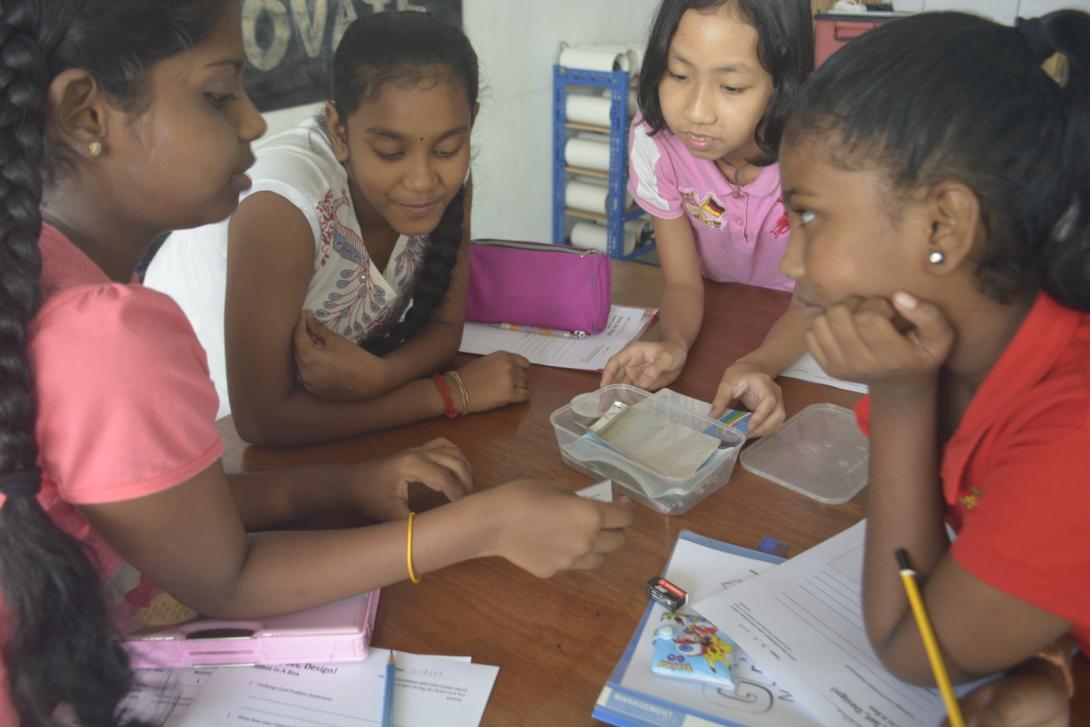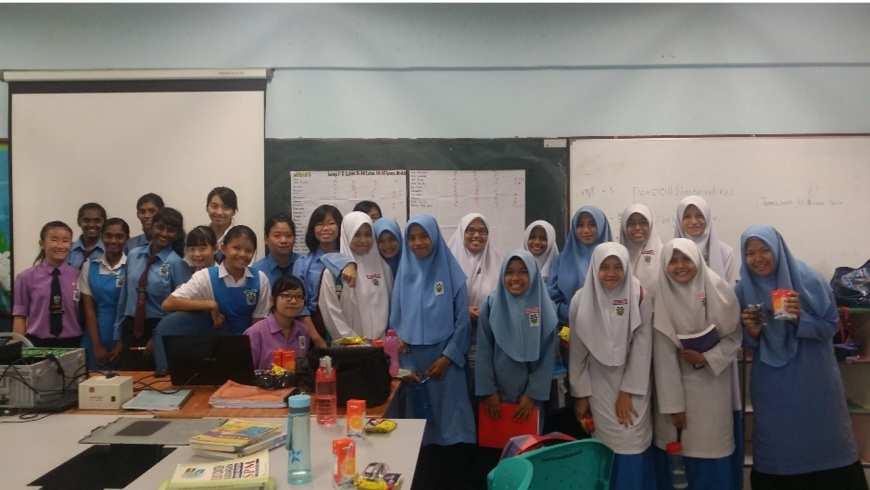An All-Girls Coding Club Challenges Stereotypes in Malaysia

In my third year of teaching, I was spending my after school hours working at Arus, the social enterprise that I co-founded with three other Teach For Malaysia alumni of my cohort. It was an afterschool center that provides programming and coding classes through maker education for students from underprivileged backgrounds and high need schools. We were teaching our students how to apply the knowledge they learn in schools into software and hardware solutions. Despite having just set up, we were already working on getting our students to present at innovation exhibitions and entering competitions.
As one of the teachers who was in charge in getting my students to these events, I slowly realized that I was constantly with my boys. It was not because our center did not have girls and it was certainly not because my girls were not as capable as the boys. When I got the girls together to discuss this, they explained that the boys seemed more confident in representing the school and that the general perception was that boys were supposed to naturally be better at designing and building robots than them. This was the first time that my girls and I discussed the importance of equal representation, equal opportunities, and women’s role in the STEM field.
Around the same time, we received an invitation to enter a social challenge competition. Motivated by our conversation, the girls at Arus decided to enter the challenge. They formed a team to tackle the gender disparity they see around them through changing the mindsets of the girls in their community. At school they conducted a survey of 186 girls—none were interested in becoming an engineer. The majority of the girls they surveyed had never heard of coding and programming, but 70% were interested in joining an all-girls club. Girls in Engineering, Math & Science—or GEMS—an exclusive club just for girls was born.

GEMS started meeting right away, and soon had to limit attendance to 35 students as the computer lab was small. The founders got the girls started on code.org, an online computer science learning platform, and built a tracker to follow the girls’ progression. When their students finished a challenge, they gave rewards.
During the final round of the social challenge competition, the founders of GEMS presented global statistics, their own findings, and their club’s activity updates in front of a panel of judges. With utmost conviction, they explained to the judges that the reason few girls pursue STEM careers is not that boys are better at science and math . The problem is that the awareness of the importance of STEM does not reach young girls, and thus deprives them of choices for future job opportunities.
As the girls were presenting, the audience cheered and laughed at all the right moments. While the judges deliberated, we participated in a session where other competitors shared what their opinions about the event. After one of the participants spoke, she pointed at my girls from the stage and told them how much she loved their idea. She happened to be an engineering student, and was one of just two girls in a class of 27. At that moment, the girls and I realized that it didn’t matter whether or not they won the competition. In eight minutes, they had instilled a sense of empowerment and possibility to other girls from other schools, who cheered and congratulated them on their presentation.
When it came time for their final pitch session, the girls began with a rendition of Que Sera Sera: “Will I be pretty? Will I be rich?” They ended their pitch by telling the crowd that they choose to be pretty with their minds and rich in their actions. GEMS was selected as the first runner up, winning RM3,000 (approximately $750) which was used to fund the club’s activities in school.
At the end of the same year, the girls brought their own inventions to an innovation exhibition. While there, one of the girls approached me, clearly offended while holding a flyer from another school’s exhibition booth. On the flyer was a picture of a mop with the tagline "A woman’s best friend: An automated mop!" My student scowled. “How can someone build something like this and call it a girl’s best friend?!”
When I began talking to the girls at Arus about female representation, I was hoping I could empower them in the field of STEM. In the process, the girls showed me (and themselves) that they can not only achieve success as programmers and engineers, they’re also able to critically analyze the culture of that field.
Today, GEMS is a permanent program at Arus, focusing on providing girls aged 9-12 how to build and control their own robots.



